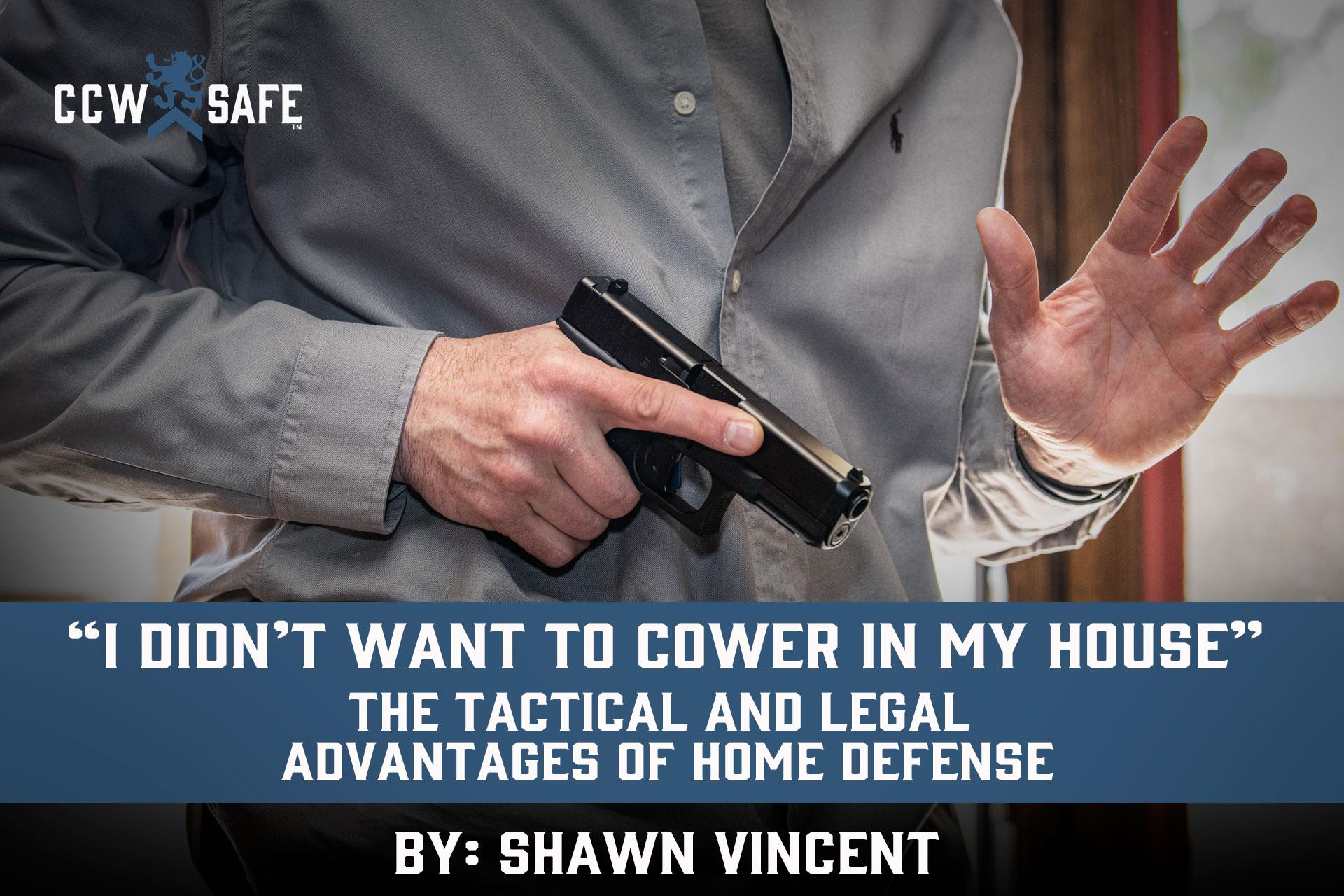
Posted on November 6, 2020
“I Didn’t Want to Cower in My House”
“I Didn’t Want to Cower in My House”
The Tactical and Legal Advantages of Home Defense
“I didn’t want to cower in my house.” That’s what Ted Wafer told jurors at his murder trial for the fatal shooting of Renisha McBride during the dark, early morning hours of November 2, 2013. “I didn’t want to be a victim.”
Wafer was trying to explain why he grabbed his Mossberg pistol grip tactical shotgun and opened his front door when he believed that multiple people had been banging on it, trying to gain entry to his house. Despite his tearful testimony, a jury convicted Wafer of second-degree murder, and the judge sentenced him to a 17-year prison sentence. McBride, it turned out, was an unarmed teenaged girl who was heavily intoxicated, injured, and likely looking for help.
For me, the words “cower” and “victim” sand out from the rest of Wafer’s testimony. “Cower” suggests that the defender would have been somehow less than vigilant in his self-defense efforts if he had not charged to meet the perceived threat outside his house. “Victim” suggests that, had the perceived threat breached the threshold of his home, the defender would have somehow lost the fight.
I disagree with this language.
We often refer to home defense cases as Castle Doctrine cases, citing the legal precedent that a person’s home is their “castle,” and they have no duty to retreat from a perceived threat. If we extend the metaphor, Castles are fortresses. They have moats and walls and parapets and portcullises. Castles are designed to be defensive strongholds that allow a small force to repel much larger armies. It would prove foolish for any defensive army to throw open the gates and venture out to meet an advancing army on equal ground, surrendering all the tactical advantages that a castle’s fortifications provide.
An armed homeowner who has trained with his or her weapon has no reason to ever “cower” in their own home. Instead, they can establish a strong tactical position and wait for the threat to meet them on their own terms.
Last summer, we wrote about a Cincinnati mother of five whose abusive ex-boyfriend tried to gain entry into her home. She ushered her children upstairs and called 911. Then she waited. When the attacker ripped an air conditioning unit out of a window and tried to enter the house, she shot him. Hamilton County Prosecutor Joe Deters declined to prosecute the mother, and instead, he praised her in a news conference where he said, “Thank goodness she had a Concealed Carry Permit and was able to defend herself and her five children.”
She didn’t cower in her home. She wasn’t a victim. She was smart. She eliminated the threat decisively and with very little legal risk. Had she lost her cool and fired through the front door, or went outside to meet her attacker, the encounter may have had tragic results for her and her children.
Not long ago, CCW Safe contributor and firearms instructor Steve Moses explained the tactical advantages of finding a “hard corner” in your home — a place where, if an intruder finds you, you’ll have a decided tactical advantage. Taking a strong defensive position isn’t “cowering”; it’s giving yourself every advantage possible to win the fight and ensuring you’re not the “victim.”
Don West, criminal defense attorney and National Trial Counsel for CCW Safe notes that, in addition to the tactical advantages of waiting for a perceived threat to breach your home before resorting to deadly force, there are legal advantages as well. In the Ted Wafer case, the prosecutors argued that McBride had not broken into the defender’s home, and that she was not attempting to do so. The judge agreed, and as a result, the jury instructions did not include language that would have allowed Wafer the legal presumption of reasonable fear that would normally accompany a home intrusion or burglary. It cost Wafer dearly.
The lesson for gun owners concerned with home defense is that, if your home is your castle, take advantage of the legal and tactical advantages your castle provides. A trained, responsible gun owner never needs to “cower” in their home, and the fastest way to become a “victim” is by abandoning the tactical advantages of the home and surrendering the legal protections of the Castle Doctrine.
 |
SHAWN VINCENT- LITIGATION CONSULTANTShawn Vincent is a litigation consultant who helps select juries in self-defense cases, and he manages public interest of high-profile legal matters. If you have any questions for Shawn, or would like more articles like this, let us know belo |